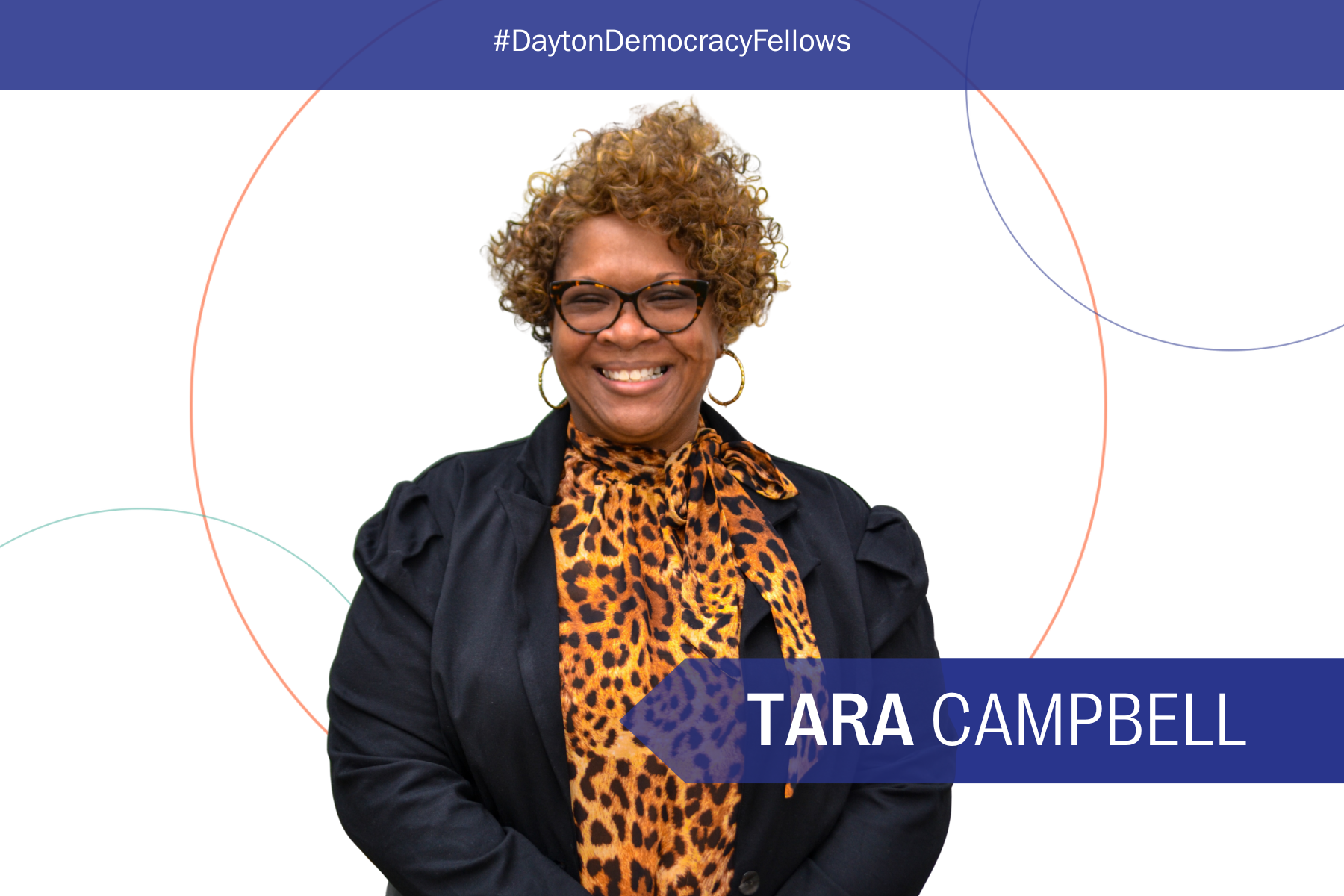Tara Campbell: Human Rights Champion

The Kettering Foundation’s Dayton Democracy Fellowship is a program that supports innovative leaders, changemakers, and dreamers who are building movements for inclusive democracy in their communities and in our wider world. This series of articles about the Dayton Democracy Fellows highlights their robust work and the powerful narratives that drive the advancement and defense of democracy.
Dayton Democracy Fellow Tara Campbell always had one goal: to be part of meaningful change. Now the executive president of the Dayton United for Human Rights coalition, her interest in community activism started early, inspired by two mentors. One was Mona Jordan, who supervised her when she worked summers for a neighborhood organization. When Campbell attended Central State University West (now Central State University-Dayton), she gained another mentor in the late Idotha “Bootsie” Neal, the college’s director and the first Black woman on the Dayton City Commission. “Under both of their leadership is where my understanding of democracy, community, and civic engagement started from,” Campbell said.
After college, she entered the housing industry, and for more than 30 years has worked in the public and private housing sector. Campbell believes that access to safe and affordable housing is not just a need, it’s essential for stability, growth, and opportunity.
“When you don’t have a stable environment, it really plays a factor on one’s mental stability and how kids really thrive in school. Housing is the first foundation for success. Housing is a human right. When housing is unstable, it doesn’t just affect one individual, it echoes through their health, their family, and the community around them,” she said.
Housing was a natural springboard to her interest in helping people improve their lives and leading Dayton United for Human Rights, a volunteer-driven organization dedicated to human dignity and strengthening community. The organization and its allies began to campaign for Dayton to become a Human Rights City, which would be the first in Ohio.
The term “Human Rights City” emerged in the 1990s, driven by an international push to bring human rights concerns to the local level. Such a city makes a public commitment to apply the United Nations’ Universal Declaration of Human Rights in its day-to-day operations. The 1948 declaration, comprising 30 articles, recognizes the equality of all people. It also outlines fundamental rights, including the right to an education, participation in government, freedom of assembly, religion, and others.
The human rights movement in Dayton, led by Campbell and her allies, paid off. In December of 2023, the Dayton City Commission unanimously passed a resolution committing Dayton to become a Human Rights City. Campbell said that this step is a way to protect democracy itself. It would not just be “flowery language.”
“We want to make sure that we uplift the voices of all people, especially marginalized communities and our youth. And so our mission is to educate people on their human rights and then they can use those rights to activate and ensure government respects and protects them going forward,” she said. “Human rights are not granted by institutions, they’re not inherited, they are simply the rights that we have, the rights we were born with because we’re humans, you know? And we demand our rights to be respected and protected.”
Dayton is in the midst of reviewing its standards, practices, and procedures that stand in the way of human rights. The coalition Campbell leads is compiling a community-led report after meeting with Dayton residents for 18 months. “We wanted to find out what it means for Dayton to become a true Human Rights City, what challenges exist, and what might effective solutions look like,” Campbell said. The report’s publication is planned to coincide with Human Rights Day on December 10, which celebrates the Universal Declaration of Human Rights.
Campbell sees all of her work as her contributions to democracy, particularly working with youth through art to help them better understand their roles as citizens. “We need to stop talking for the youth and allow them to create the table and be at the table,” she said. “They understand what they need. We need to offer them spaces to express themselves.” It’s all part of uplifting voices, Campbell said. “And getting the youth to understand the importance of their human rights that they were born with.”
Maura Casey is a former editorial writer for the New York Times and has worked with the Kettering Foundation since 2010.